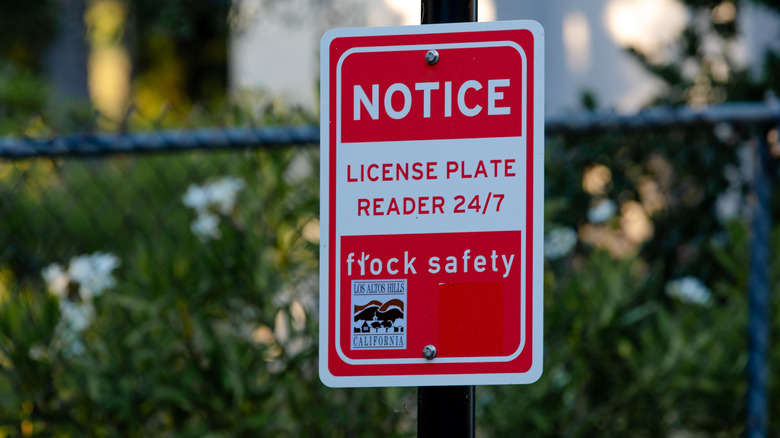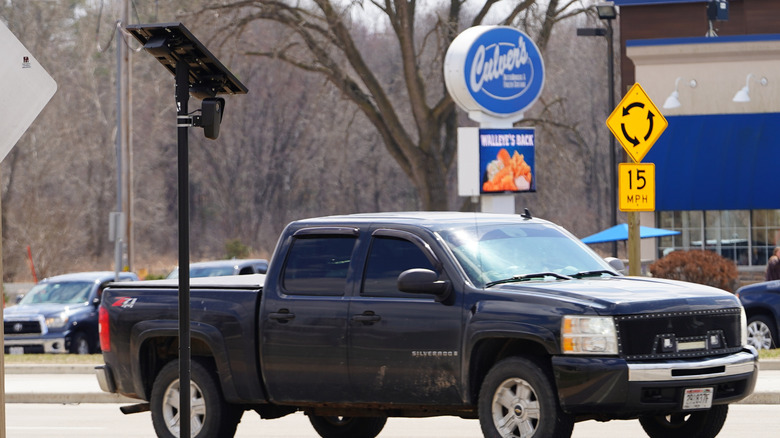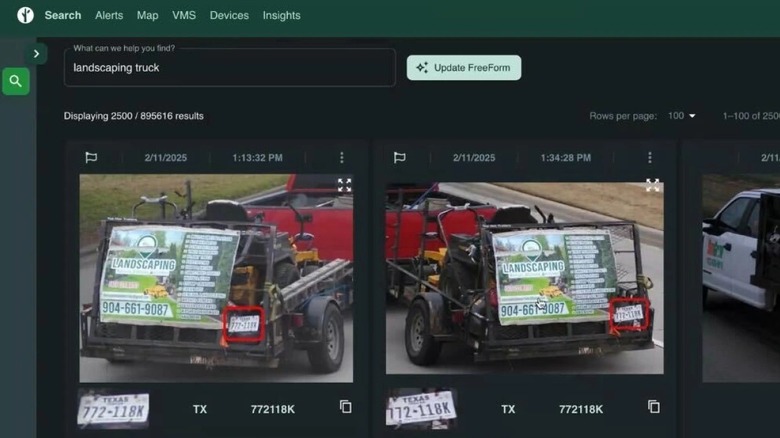Cities Are Fighting Back Against The Law-Breaking Flock License Plate Cameras
Some cities are beginning to fight back against the increasingly ubiquitous Flock Safety cameras used by law enforcement to track millions of vehicles each day. With mounting pressure, many of Flock's contracts are being called into question, as is the legality of its business practices. Recent dust-ups in Colorado, Illinois, and Texas have resulted in legal action and canceled contracts in response to some of the most egregious offenses.
Amid growing public debate over the role of surveillance tech in law enforcement, Flock issues have become a flashpoint. Its cameras, which can track vehicles using an easily-searchable database, have blanketed hundreds of cities across the country. The company presents its product as a simple license plate scanner, boasting "billions of monthly plate reads." That phrasing alone makes clear that committing a crime isn't the only way to end up in Flock's tracking database. One Virginia man found he had been tracked 526 times in just four months after investigating the company. Meanwhile, Flock's pitch to law enforcement boasts much more aggressive AI capabilities than simple plate scanning, including a "Vehicle Fingerprint" that can track cars even without a license plate by identifying everything from paint jobs to specific objects in a truck bed.
Recently, Flock has come under fire as Federal immigration and border-control agencies began relying on it to enforce crackdowns that some argue violate state and local laws. Flock has been found guilty of breaking the law in at least one state, and its contracts with local police are either under scrutiny or canceled in a number of municipalities. Here's how things are unfolding in cities across the country.
Flock's work with federal immigration enforcement runs afoul of state laws
On Aug. 26, the city of Evanston forced Flock Safety to remove 19 cameras tracking cars across the area. The contract was terminated after Secretary of State Alexi Giannoulias and his office determined that the company had allowed U.S. Customs and Border Protection to access the system in violation of state law. After Flock initially took down 15 cameras in early September, residents were startled to see the cameras back in place that Tuesday, though some had been placed near to their original spots or swapped for different models. As reported by the Evanston RoundTable, the city sent a cease-and-desist to Flock upon discovering reinstalled units, which provide much more information than what cops usually see when they run your plates. Other municipalities have also cut ties with Flock, both in Illinois and around the country.
To date, Flock has lost additional contracts with cities including Austin, Texas, Denver, Colorado, Oak Park, Illinois, and Sedona, Arizona. In many cases, the contracts were cut after significant pushback from concerned locals. However, some contracts have since been renewed. In May, the Denver City Council unanimously voted down an extension to a police contract with Flock, but Mayor Mike Johnston's administration took unilateral action to approve its own continuation for the cameras, which adds to those installed at almost 70 intersections. The deal prompted swift backlash from the American Civil Liberties Union (ACLU) of Colorado. Austin, which cut contracts with Flock in June, is now assessing a contract with LiveView, one of Flock's competitors.
Across the U.S., concern mounts over warrantless mass surveillance
Colorado has become a microcosm of the wider controversy of Flock cameras. Aside from Denver, Flock operates in Boulder, Colorado Springs, Lafayette, Louisville, and Loveland, among others. Flock audit logs obtained through a Colorado Open Records Act (CORA) request showed that Denver's Flock data was searched on behalf of Immigration and Customs Enforcement (ICE) officials over 1,400 times in the year beginning June 2024. The immigration searches were carried out by both local and out of state departments. A statement from the ACLU of Colorado alleges that the Mayor's office and DPD were aware of the misuse despite multiple statements in which the Mayor's office denied such activity. SlashGear reviewed the logs as publicly shared by the ACLU and found numerous instances of the searches allegedly conducted on behalf of ICE, alongside thousands of searches by local police departments and state agencies across the country, from Washington to Georgia.
The situation in Colorado mirrors those in Illinois, Texas, and elsewhere. A statement from the Institute for Justice condemned Flock's "warrantless mass surveillance," warning that police are abusing the ease of access it provides. "There have been reports of police using these cameras to stalk ex-girlfriends, improperly sharing data with federal agencies, and providing bogus reasons for searching databases — and these are just the instances of abuse we know about," it reads in part. An August 25 blog post to Flock's website from CEO Garrett Langley claimed the company had paused what it called "limited pilots" with federal immigration and homeland security agencies and promised to add "new compliance tools" to the software.


